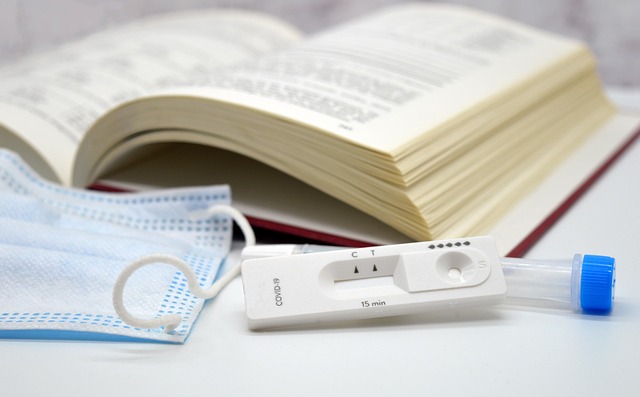Maintaining healthy cholesterol levels is crucial for cardiovascular well-being. This article guides you through the process of finding reliable cholesterol blood test providers, ensuring accurate results. We explore essential criteria for selecting reputable laboratories, best practices for quality assurance, and different test types available. Understanding cholesterol blood tests and knowing where to turn for dependable results is key to managing your health effectively.
- Understanding Cholesterol Blood Tests: Why They Matter and How to Prepare
- Identifying Reputable Providers: Criteria for Choosing Reliable Laboratories
- Ensuring Accurate Results: Best Practices for Quality Assurance
- Comparing Options: Exploring Different Test Types and Their Availability
Understanding Cholesterol Blood Tests: Why They Matter and How to Prepare
Cholesterol blood tests are essential tools for assessing cardiovascular health. They measure levels of low-density lipoprotein (LDL) and high-density lipoprotein (HDL) cholesterol, along with triglycerides, in your blood. Understanding why these tests matter is crucial. High LDL cholesterol, often referred to as ‘bad’ cholesterol, can lead to plaque buildup in arteries, increasing the risk of heart disease and stroke. Conversely, HDL cholesterol, or ‘good’ cholesterol, helps remove LDL from the bloodstream.
Proper preparation is key to ensuring accurate test results. Fasting for at least 8-12 hours before the test is recommended. During this time, avoid foods and beverages containing fat, oil, or sugar. Some providers may also advise stopping certain medications temporarily, so it’s important to consult with your healthcare provider beforehand. Additionally, staying calm and relaxed on the day of the test can help prevent stress from affecting results, as stress can momentarily elevate cholesterol levels.
Identifying Reputable Providers: Criteria for Choosing Reliable Laboratories
When seeking a cholesterol blood test, identifying reputable providers is paramount for ensuring accurate and reliable results. To make an informed decision, consider laboratories that are accredited by recognized quality assurance programs. Accreditation ensures adherence to strict standards in testing procedures, equipment calibration, and personnel training. Additionally, look for facilities with robust quality control measures in place, including regular internal and external validation processes.
Other criteria to consider include the laboratory’s experience and specialization in cholesterol testing, as well as their capacity to handle high volumes of samples without compromising accuracy. Online reviews from previous clients can also offer valuable insights into a laboratory’s reputation and customer service. Reputable providers will be transparent about their methodologies and willing to answer any questions or concerns you may have regarding the process and interpretation of results.
Ensuring Accurate Results: Best Practices for Quality Assurance
Ensuring accurate results from a cholesterol blood test is paramount for maintaining optimal health. To achieve this, reputable providers implement stringent quality assurance practices. These include using validated and calibrated testing equipment to minimize technical errors, as well as adhering to standardized protocols for specimen handling and processing to prevent contamination or mishandling.
Additionally, continuous training of staff and regular internal quality control measures help maintain precision. Utilizing accredited laboratories that adhere to high standards set by regulatory bodies further guarantees the reliability of results. By following these best practices, cholesterol blood test providers can offer precise data, empowering individuals to make informed decisions about their cardiovascular health.
Comparing Options: Exploring Different Test Types and Their Availability
When considering a cholesterol blood test, it’s essential to explore different test types available to ensure accurate results. Common options include total cholesterol, LDL (low-density lipoprotein), HDL (high-density lipoprotein), and triglycerides measurements. Total cholesterol tests are the most basic, providing an overall picture of your cardiovascular health. More detailed profiles, like those offered by advanced clinics, break down specific types of cholesterol, offering a more nuanced understanding of potential risks.
The availability of these tests varies among providers. Some labs specialize in comprehensive lipid panels, while others may only offer basic total cholesterol checks. Online and at-home testing kits are also prevalent, but their accuracy can differ. It’s crucial to compare facilities based on their test types, pricing, and reputation for delivering reliable results. Reputable providers invest in advanced equipment and trained professionals to guarantee precise readings, a vital step in managing your cholesterol levels effectively.
When it comes to managing your cholesterol levels, choosing a trusted cholesterol blood test provider is paramount. By selecting a reputable laboratory that adheres to quality assurance standards, you can ensure accurate results and make informed decisions about your health. Remember, regular testing and knowing your numbers are essential steps towards maintaining a healthy cardiovascular system.
